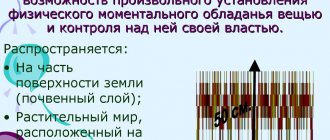Last modified: October 2021
Often using the phrase about being “dependent” when communicating with official bodies and friends, many do not even think about who a dependent is, replacing more impartial words - lazy or parasite. Meanwhile, this concept has very clear legal formulations of “dependent”; who and what powers the status gives is explained in general federal legislative acts, including the Civil, Family and Labor Codes. Sometimes recognition of such status has no value in the eyes of a person and his relatives, but there are a number of life situations when it is necessary to confirm dependent status in the exercise of certain legal rights and benefits.
What does dependent status provide?
Being a dependent or having another person as a dependent is not only about receiving care and caring. Dependent status implies rights to inheritance, payments, pension supplements and other preferences.
By dependent I mean a citizen who is on long-term or permanent material (monetary) support from the state or other citizens. As a rule, these are pensioners, disabled people, children under 18 years of age, and other disabled or temporarily disabled persons.
The law does not establish the concept of “dependent”. However, in practice, when determining persons classified as dependents, the criteria specified in Art. 10 of the Federal Law of December 28, 2013 No. 400-FZ. Then, dependents can include, for example, minor children who are fully supported by their parents.
Based on the general concept, if you have dependent status , the law may give you the rights to:
- for pension provision;
- compensation for damage caused by the death of the breadwinner;
- for the payment of certain types of benefits and compensation;
- inheritance rights.
In what cases these rights can be exercised, read further in the article.
On the contrary, if you have dependents, this implies the need to provide them financially. They also have the right to inherit your property.
What does it mean to be dependent?
Dependency is the complete long-term or permanent maintenance (provision) of a person by the state or another person . Therefore, the expression “to be dependent” means to be fully provided for by the state or a private person.
A dependent is a person who is permanently or for a very long time fully supported materially or financially by another person or state. Such persons maintained by the state include the following categories:
- pensioners - men and women who have reached the retirement age ;
- disabled dependents who have lost the opportunity to fully live and work due to irreparable injuries or chronic serious illnesses;
- orphans;
- inmates of orphanages - children left without parents and who are fully supported by the state in special institutions;
- gifted young people awarded scholarships for further education are schoolchildren and students, provided from special state funds.
The category of dependents supported by private individuals includes elderly parents supported by their children or other relatives, and other people not provided by the state.
Attention! Dependents do not include unemployed able-bodied persons and persons under retirement age. Also formally, dependents provided by private individuals include any child under the age of majority . It is the direct responsibility of their parents to support such children.
Who is recognized as a dependent - all categories
A disabled citizen may be supported by the state or another person.
The state
Such persons maintained by the state include the following categories:
- the retirement age established by law (note that the Government announced pension reform in 2021. Since 2019, the retirement age in Russia began to increase gradually to 60 years for women and to 65 years for men);
- disabled dependents who have lost the opportunity to fully live and work due to irreparable injuries or chronic serious illnesses;
- orphans;
- pupils of orphanages - children left without parents and who are fully supported by the state in special institutions; (orphans and children left without parental care are guaranteed the right to be placed in a family for upbringing (adoption): under guardianship (children under 14 years old) or guardianship (children from 14 to 18 years old), in a foster or foster family In the absence of such an opportunity, temporarily, for the period until placement in a family, they are guaranteed to stay in an organization for orphans (Clause 1 of Article 123, Article 152, Article 155.1 of the RF IC)
- gifted young people awarded scholarships for further education are schoolchildren and students, provided from special state funds.
Read also: How much is advanced age?
An interesting case is when a scholarship is provided to an orphan student.
So according to paragraph 4 of Art. 1 of the Federal Law of December 21, 1996 N 159-FZ “On additional guarantees for social support of orphans and children left without parental care” (hereinafter referred to as Law N 59-FZ) by persons from among orphans and children left without parental care without parental care, are persons aged 18 to 23 years, who, when they were under the age of 18, both or a single parent died, and also who were left without the care of a single or both parents and have, in accordance with this Federal Law the right to additional guarantees for social support.
Clause 3 of Art. 6 of Law N 159-FZ provides that persons from among orphans studying full-time in basic professional educational programs at the expense of the relevant budgets of the budget system of the Russian Federation and (or) in vocational training programs for blue-collar professions, civil servant positions the account of funds from the budgets of the constituent entities of the Russian Federation or local budgets are credited for full state support until the completion of training in the specified educational programs. If such persons reach the age of 23, they retain the right to full state support and additional guarantees for social support provided for these persons until completion of training in such educational programs.
The ruling of the Investigative Committee for civil cases of the Supreme Court of the Russian Federation dated December 14, 2012 No. 1-KG12-3 states that this addition to Law No. 159-FZ clarifies the content of paragraph 3 of Art. 6 of Law N 159-FZ, thereby removing the uncertainty in the issue of preserving for persons from among orphans and children left without parental care the right to full state support and additional guarantees for social support when receiving vocational education after reaching the age of 23 years until graduation from the specified educational institutions.
As follows from the provisions of paragraphs. “b” clause 2, part 3, art. 12 of the Federal Law of December 29, 2012 N 273-FZ “On Education in the Russian Federation” (hereinafter referred to as Law N 273-FZ), bachelor's degree programs, specialty programs, master's programs are considered the main professional educational programs of higher education. Persons with secondary general education are allowed to study bachelor's or specialty programs. Persons with higher education of any level are allowed to study master's programs (Article 69 of Law No. 273-FZ).
Thus, for example, if persons from among orphans are enrolled in a magistracy before reaching the age of 23, they have the right to additional social guarantees when receiving vocational education throughout the entire period of study until completion in full, regardless of age (see for example, the decision of the Zheleznodorozhny District Court of Barnaul, Altai Territory dated February 17, 2015 in case No. 2-669/2015, the decision of the Oktyabrsky District Court of Vladimir, Vladimir Region dated January 23, 2021 in case No. 2-440/2019) .
From relatives and other persons
Later in the article we will talk specifically about this category of persons. Citizens supported by other persons may include:
- elderly parents supported by their children or other relatives;
- any child under the age of majority. Supporting such children is the direct responsibility of their parents (Article 54 of the RF IC). Also included in this category are university students under 23 years of age;
- a spouse who has reached retirement age or is unable to work due to disability (Article 90 of the RF IC);
- younger brother or sister (in the absence of able-bodied parents);
- citizens unable to work due to disability.
Based on an analysis of Federal Law No. FZ-173 of 2001 “On Labor Pensions in the Russian Federation”, to establish dependent status it is necessary that:
- The dependent was a family member;
- Was disabled;
- Received funds for subsistence in full or in part from a third party.
Who is not a dependent
In what cases is it impossible to prove the fact of dependency? If you receive payments and benefits for a dependent, it is important to know when they lose this status.
Attention! Dependents do not include:
- unemployed able-bodied persons who have not reached retirement age;
- housewives;
- children under 18 years of age who are married or officially employed;
- children - university students under 23 years of age, officially employed full-time
Who are dependents: the position of legislators
There are several interpretations of the concept of what a dependent is. If we turn to the general semantic load, dependents are citizens who are temporarily or long-term supported by another individual or dependent on state assistance. If a person receives support, lives at the expense of other bodies or private individuals, this means that he is dependent.
The word is of Old Church Slavonic origin, from “expect”, which meant to waste or live. Later, the word received a clearer form to identify individuals who need financial support at the expense of others. A person who needs additional support at the expense of others is called a dependent.
Since the law contains many cases when a person in need has the right to count on outside help, a more precise disclosure of the characteristics of dependency and rights within this status was required.
The concept has not been clearly defined in the Civil Code, but there are a number of general provisions in federal legislation that mention the rights and conditions for dependency.
According to the provisions of Federal Law 173, adopted on December 17, 2001, when clarifying issues regarding labor pensions, legislators defined the categories of persons who may be dependent (Article 9, paragraph 2). The law exempts from the need to obtain a special status for minors who are supported by capable adults. The remaining categories of citizens confirm their status within the framework of labor legislation on the basis of a medical certificate of incapacity received.
Turning to labor legislation, namely Art. 179 of the Labor Code of the Russian Federation, find provisions that clarify the signs of compliance with the status of “dependent”. For a working person, dependents are considered to be all persons who are fully supported, receive money and the conditions necessary to maintain decent living conditions.
Who can be considered a dependent
Obviously, the interpretation of the term can vary significantly in relation to different legal areas. Common definitions include words about dependents as persons who are unable to provide for themselves and are forced to rely on the help of others.
From this formulation it follows that health status and disability are only one of the reasons to consider a person dependent.
Categories of citizens who are considered dependents:
- persons with registered disabilities, including those unable to work due to mental disorders;
- minor relatives;
- persons over 18 years of age who are in full-time education without the opportunity to earn money;
- pensioners recognized as disabled;
- persons who signed an agreement with the appointment of lifelong maintenance.
- How to recognize the incapacity of an elderly person
There are persons supported by the state and private persons. State support is provided for children left without parents, pensioners, students and disabled clients of specialized government institutions.
More often, dependency is encountered within one family, when citizens themselves are obliged to provide their loved ones with the necessary degree of comfort:
- Minor children, including adopted children.
- Persons with disabilities living in the family, regardless of age.
- Children of parents, subject to their disability, minority or full-time education, under the age of 23 years.
- Parents receiving monthly contributions from the Pension Fund.
- Children of children under 18 years of age.
- Marriage partner after retirement.
- Persons who are dependent for life according to a previously signed agreement.
Some are accustomed to calling a woman raising young children a dependent. It is possible to obtain this status, but only if the mother is not on maternity leave and does not work due to the need to take care of children under 14 years of age.
You have a dependent - what does this give?
Being a dependent gives certain rights to disabled citizens. But if you have a dependent, this must also be remembered and mentioned in some situations. Here is a list of situations when you need to indicate its presence:
- Bankruptcy . In this procedure, the administrator is obliged to allocate a living wage to you and all your dependents from the bankruptcy estate. paragraph 1, clause 3, art. 213.25 of the Bankruptcy Law, Art. 446 of the Civil Procedure Code of the Russian Federation, Resolution of the Plenum of the Supreme Court of 2021 No. 48 “On some issues related to the peculiarities of the formation and distribution of the bankruptcy estate in cases of bankruptcy of citizens”;
- Getting a loan . The bank takes into account the number of persons who are financially dependent on the borrower;
- Receiving a pension (an increase is due);
- Staff reduction . Persons with two or more children have an advantage in retaining their jobs over workers without them. Basis - art. 179 Labor Code;
- Inheritance . Dependents receive the right to retain their obligatory share in the inheritance (read more below);
- Arrest and detention. In this case, when choosing a method of suppression, the presence of dependents of the prisoner is taken into account. And are there other persons who can take care of them during the period of imprisonment;
- Administrative or criminal sentence Availability of dependents in accordance with Art. 61 of the Criminal Code of the Russian Federation may lead to a mitigation of punishment.
When to consider a person a dependent by law
The need to clarify the status of who dependents are by law arises when planning to organize assistance from the state or from relatives.
In the law on state pensions, the issue of dependency is considered as a situation of receiving monetary assistance from outside in the absence of other sources of income. There is no need to prove family ties, which gives the right to accept dependent persons regardless of their family circle.
The law also does not require both parties to live together. The main thing is that a connection is established between the assistance provided to a specific person.
The concept of a dependent acquires particular meaning in relation to issues of inheritance, when a person has the right to claim an obligatory share in the inheritance after living with the deceased for the previous year or more in the status of a “dependent”. Time is counted from the date of death, assuming that at the time of the death of the testator the person was dependent on him financially for at least the last 12 months. To confirm the right of inheritance, you will have to obtain official status.
The question is often asked whether pensioner parents are dependents. Living together with elderly parents, relatives accept them as dependents if they really need support and financial support from their children. Any citizen is responsible for each of his relatives if they are dependent, regardless of the number of dependents and the earnings of an able-bodied person.
Dependent's rights under the law
We figured out who a dependent is and what rights he has. The most common legal situations related to this concept are:
- division of inheritance;
- assignment of benefits;
- establishing a pension supplement (compensation payment);
Receiving an inheritance
The fact of being a dependent is very important when receiving the inheritance of a deceased relative or other person, determining the property share or financial size. The procedure for inheriting property by dependents is regulated by Art. 1148 of the Civil Code.
A dependent has the benefits of his status and can receive part of the testator’s property without taking into account family ties. To do this, upon entering into an inheritance, he must be disabled at the time of the death of the breadwinner and be in the care of the testator for at least a year before his death.
Important: A person, in order to claim part of the deceased’s inheritance , does not have to be his relative. Both the heir and the testator should remember this.
No family ties
Persons claiming a part of the inheritance and not related to the deceased by family ties include:
- disabled dependents who lived for a long time (more than 1 year) with the deceased in the same living space - in simple language, cohabitants;
- persons who were fully financially supported by the deceased;
- persons who received most of their income from the deceased for subsistence, purchase of medicines, payment of utilities and other services.
For relatives
If the dependent is a relative of the deceased, then in order for him to receive a part of the inheritance, the following conditions must be met:
- The person must be officially recognized as disabled by an appropriate certificate or conclusion of a medical commission;
- The person must have been fully supported by the deceased relative for more than 1 year;
The following cases are taken into account:
- When the person was a dependent immediately before death (for example, death occurred on November 15, 2017, and the niece has been a dependent since November 1, 2016);
- Continuous dependency for more than a year, even if it was several years before death;
- The sum of periods with a total duration of more than a year is also taken into account (for example, during his life, the brother of the deceased was dependent three times for a period of several months, that is, the total duration was 1 year and 2 months).
- The dependent's income recently consisted of funds allocated by the deceased relative - that is, the deceased actually supported his disabled relative.
Dependency Dependent
— Rabinovich, how dare you, when filling out the form, write “state” in the “dependents” column?!!
Dependency as a personality quality is a tendency to abuse the compassion, attention, help and weakness of other people and organizations, consciously strive to live at their expense, without making any effort to solve one’s own problems.
One day a small gap appeared in the cocoon. A random person passing by stood for long hours and watched as a butterfly tried to exit through this small gap. A lot of time passed, the butterfly seemed to give up its efforts, and the gap remained just as small. It seemed that the butterfly had done everything it could, and that it had no more strength for anything else. Then the man decided to help the butterfly, he took a penknife and cut the cocoon. The butterfly immediately came out. But her body was weak and feeble, her wings were transparent, and she could hardly move. The man continued to watch, thinking that the butterfly’s wings were about to straighten and get stronger and it would fly away. Nothing happened! For the rest of its life, the butterfly dragged its weak body and its unstretched wings along the ground. She was never able to fly. And all because the person, wanting to help her, did not understand that the butterfly needs effort to exit through the narrow gap of the cocoon so that the fluid from the body passes into the wings and so that the butterfly can fly. Life made it difficult for the butterfly to leave this shell so that it could grow and develop. Sometimes it is effort that we need in life. If we were allowed to live without encountering difficulties, we would be deprived. We couldn't be as strong as we are now. We would never be able to fly.
Dependency is the selfish desire of a completely healthy person to live at someone else’s expense. Dependency is when the thought sticks in the mind like a thorn that one can consume without reproducing. Humanity can make ends meet if it at least ensures simple reproduction. That is, consume exactly as much as you produce. Expanded reproduction already presupposes accumulation. Dependency is configured only for consumption. Creation is not his style.
And here’s how the Brief Dictionary of Family Education defines dependency: “Dependency is a social phenomenon and a personality trait, manifested in the inability and unwillingness of people to support themselves financially and spiritually, in the absence of a sense of responsibility and readiness to solve complex life problems.”
Dependency is an ideology of selfishness, standing on the platform that someone is obliged to support me, provide for me, help me. Like any ideology, dependency puts forward beautiful slogans about mutual assistance, compassion, donation, charity and caring for one’s neighbor. Lying on the stove, it is at the same time filled with envy and anger towards others.
Dependency is an unscrupulous kept woman. It skillfully inspired its owner that their relationship was completely appropriate and fair, that nothing needed to be changed. And so everything is wonderful and excellent. There is a Buryat parable about this. One driver always, when he climbed to the top of a mountain, made an offering to its Owner - he spilled a handful of grain. But at one point he had doubts about this custom, and he decided to ask Lama Sodnom, whom he was lucky enough to give a ride, about it. He answered him: “If you have made an offering to the Owner of the area at least once, then now you must do it every time, again and again, otherwise the Owner will be offended and begin to harm you.” But if you didn’t make an offering, then the owner of the area would not be able to harm you - he doesn’t even know you.
Guess which country I'm talking about. Dependency and parasitism produce 20% of world GDP and consume 40% and at the same time be proud of their standard of living, success and democracy. Getting into the pockets of other states at the expense of the printing press and living comfortably at the expense of this is the standard of manifestation of dependency. Did you guess it? That's right, USA. I propose calling a spade a spade: quarterly publishing in the media a list of dependent countries. This will be a manifestation of true democracy. “Undemocratic” Russia will be among the outsiders.
The ultimate expression of democracy is to say, “Our national debt is $17 trillion. We do not give away free dollars to anyone. We have already consumed $17 trillion worth of goods and services from other countries that are not as rich as us. In return, we gave them green pieces of paper, so that they, stupid and naive, could rejoice. To be honest, we are behaving extremely dishonestly, because we know that we will never repay the debt.”
Today, dependency has become a clearly manifested personality trait among millions of people. President V.V. Putin said in an interview: “In many European countries, dependency has flourished, which threatens not only the economy, but also the moral foundations of society.” «.
As he believes, “it is not social policy, but living beyond one’s means, loss of control over the general state of the economy, structural imbalances - these are what lead to the consequences that Europe is faced with today... It is no secret that many citizens of less developed countries come to Europe specifically in order to “go on” social benefits, as they call it in Germany.” His colleague Alexander Lukashenko once said: “Laziness and dependency are becoming more and more widespread in Belarusian society, and this is where subjective threats to the country’s independence lie.”
Dependency is natural for a child, a disabled person and an incompetent person. But when a healthy bull walks around inappropriately, this is evidence that something is wrong in society. Yakov Krotov writes: “Dependent psychology is everywhere where power is more important than creativity, and the dependent agrees that it be someone else’s power, and he is with it. Such humility - humility before someone else's power, humility before one's laziness - is a betrayal of oneself, one's neighbor and the Creator. He who is ready to be a dependent, if only not to be a creator, if only the other would not be a creator, betrays life to death, he is ready to die or kill, so long as there is no “anarchy”, “disorder”.
A monk once told St. Anthony that, in his opinion, there is more merit in pursuing virtues in the world than in the desert. The monk asked him where he lived. He replied that he was with his parents and received all the support from them. He is thus freed from all worldly worries and can freely indulge in reading and prayer.
“But, my son,” the monk objected to him, “when trouble happens to your parents, doesn’t it upset you?” And if they have reason to rejoice, don’t you share the joy with them? “Yes,” answered the monk, “and I am affected by everything that happens to them, both good and bad.” “Then know,” the holy elder answered him, “that in the future life you will be placed among those with whom you shared joy and sorrow.”
“But,” the monk continued, “this is not the only unfavorable condition of the state of indifference and laziness in which you live, and a very unfavorable circumstance, since it forces your soul to change its mood in accordance with what is happening with your parents and constantly chains your soul to the ground. A further evil lies in the fact that, by giving you something to live on, they deprive you of the fruits of the reward of your labor and prevent you from fulfilling the rules of St. Paul, who commands you to eat by the labor of your own hands.
Petr Kovalev Other articles by the author: https://www.podskazki.info/karta-statej/
The fact of being dependent
The fact of being a dependent is established by collecting and submitting the appropriate package of documents. The final decision on recognizing a person as a dependent is made by the court.
When is it necessary to establish the fact of dependency?
Establishing the fact of being a dependent is necessary in the following situations:
- Receiving a property or financial part of the inheritance of a deceased relative;
- Increasing the share of the inheritance or transferring a dependent to a higher priority line of inheritance with the ensuing rights to inheritance;
- Receiving permanent benefits in the event of the loss of the sole breadwinner;
- Receiving a one-time one-time compensation in case of loss of a breadwinner;
- Mitigation of punishment for a dependent who has committed an unlawful act of a certain severity (criminal or administrative);
- Transfer of a dependent to support the state or other persons, upon arrest, detention or assignment of a prison term to the person who previously provided for him;
- Assignment of a pension in the event of the loss of a breadwinner whose dependent was fully supported;
- Obtaining citizenship or residence permit.
The procedure for establishing through the court
Going to court may be necessary in all the cases described above, if various bodies and officials refuse to recognize the fact of dependency. For example, when social security refuses to pay benefits, the pension fund refuses to receive a pension supplement, or when dividing property. In accordance with Part 2 of Article 264 of the Civil Procedure Code of the Russian Federation, the court is obliged to consider cases to establish the fact of being a dependent.
In order for a person to fall into the category of dependents, he must write an application to the district court at his place of residence. It should contain the following data:
- “Cap” – the full official name of the court to which this document is filed, full name and full address at which the person filing the claim is registered;
- List of documents attached to the statement of claim;
- Date of filing the claim;
- In addition, a receipt indicating payment of the state duty is attached to the above documents.
What should the application contain?
The application is drawn up in two copies and registered in the body (court) where it is submitted. Collected and correctly executed documents are submitted to the court at the place of residence of the applicant or his authorized representative.
The statement states:
- Descriptive part – full name and all data of the person applying for recognition as a dependent;
- the purpose of the statement - why it is necessary to admit the fact;
- the reasons and circumstances for which the fact of being a dependent person must be recognized;
- period and cause of disability;
- a person who is dependent on the plaintiff.
Sample application
On our website you can make statements.
What is evidence in court?
To confirm the fact of being a dependent, you must provide additional documents and information:
- Receipts for payment of utility and other expenses by the person who provided security for the applicant;
- Receipts of money transfers to a dependent from the person who supported him;
- Testimony and eyewitness accounts of cohabitation - neighbors, relatives.
Important! In order to save time and more competently draw up a statement of claim to the court, as well as correctly collect and execute all the necessary documents, you should contact a legal adviser with a positive reputation.
You found out who a dependent is, what rights and payments are due to him. Sooner or later, each of us is faced with this phenomenon. And without legal knowledge, it is often very difficult to obtain support both from the state and from relatives and other persons obliged to provide it.
Until what age is a child considered a dependent?
Separately, it is worth defining what a dependent child is, since there are some exceptions when the status of dependent children is lost. Up to what age dependency is determined depends on the establishment of incapacity and incapacity for work of minor citizens.
For example, when a teenager is emancipated, the breadwinner status is automatically lost, and the child leaves care without waiting for his 18th birthday if:
- finds employment;
- registers the marriage with the civil registry office.
The termination of dependency will be confirmed by a court decision declaring the minor emancipated.
The period can be extended beyond 18 years if:
- you will be studying at an institute or other educational institution without the possibility of parallel work;
- there are medical indications and confirmation of a disability group with incapacity status.
As long as the child remains disabled due to a variety of circumstances, he will be considered a dependent of the parent by law. If you are a minor, there is no need to separately confirm your status - most government agencies and supervisory authorities are limited to a certificate of family composition and an extract from the house register about cohabitation.
Used sources
- Federal Law of 2001 No. FZ-173 “On labor pensions in the Russian Federation;
- Civil Procedure Code of the Russian Federation dated November 14, 2002 N 138-FZ (as amended on December 8, 2020, as amended on March 2, 2021);
- Civil Code of the Russian Federation, part one of November 30, 1994 N 51-FZ, part two of January 26, 1996 N 14-FZ, part three of November 26, 2001 N 146-FZ and part four of December 18, 2006 N 230-FZ;
- Federal Law of October 26, 2002 N 127-FZ “On Insolvency (Bankruptcy)”;
- “Criminal Code of the Russian Federation” dated June 13, 1996 N 63-FZ (as amended on February 24, 2021)
- Resolution of the Plenum of the Supreme Court of Russia dated December 25, 2018 No. 48 “On some issues related to the peculiarities of the formation and distribution of the bankruptcy estate in cases of bankruptcy of citizens”;
The article was prepared by lawyer on family and civil issues Anton Nikolaevich Shcherbak
If the article was useful, please like it and add it to bookmarks.
If you do not find the information you need, you can get FREE legal advice on our website. Leave your question in the comments or contact a site consultant.











